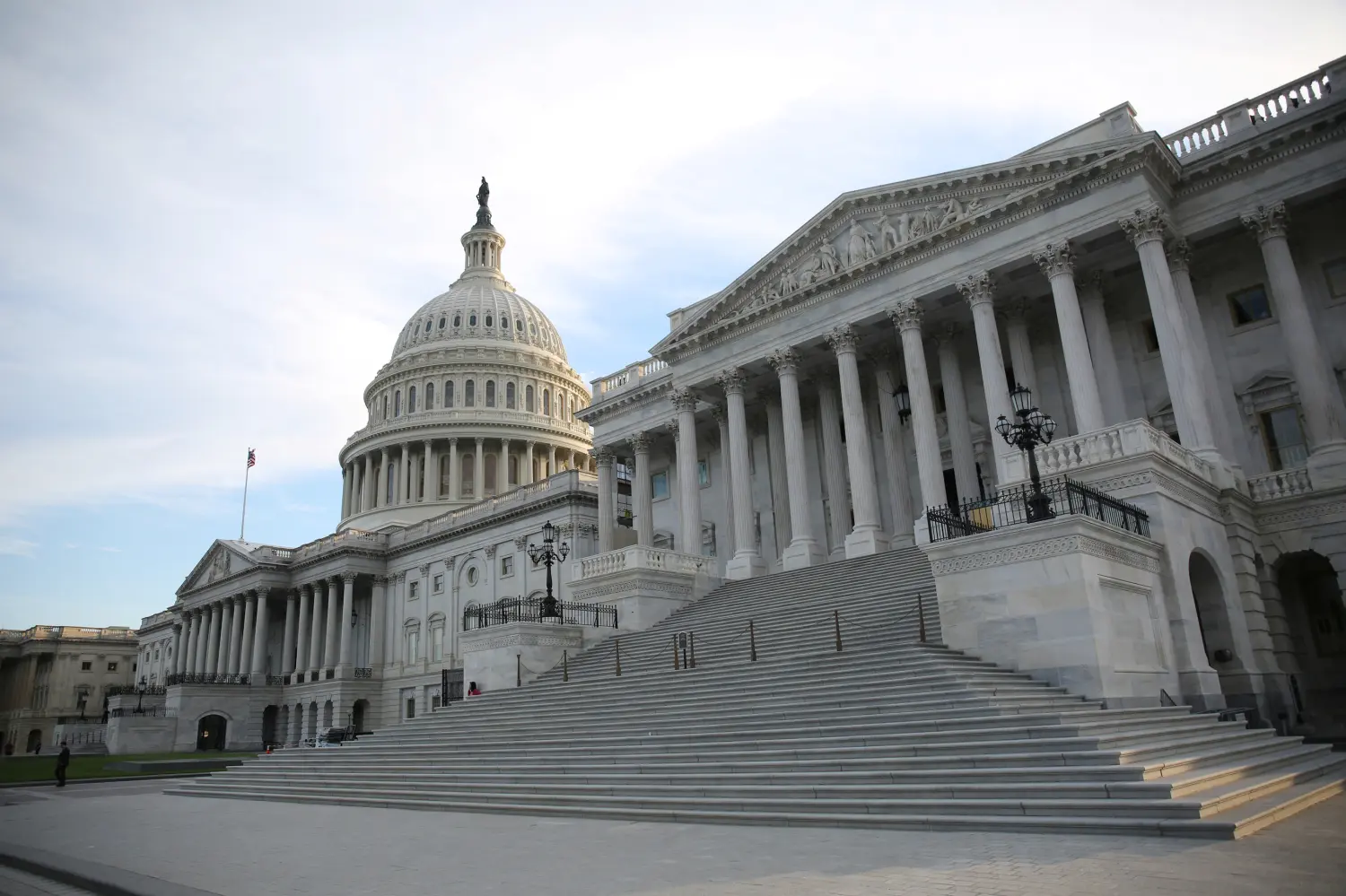Headlines
2026 World Cup Will Feature 48 Teams in 12 Groups, FIFA Confirms

The expanded 2026 men’s World Cup in North America will start with 12 groups of four teams in a change from the original planned format of 16 groups of three, football’s world governing body FIFA announced on Tuesday.
The next World Cup in the United States, Canada and Mexico will be the first to feature 48 teams, a sharp increase from the 32 sides at last year’s tournament in Qatar.
“The revised format mitigates the risk of collusion and ensures that all the teams play a minimum of three matches, while providing balanced rest time between competing teams,” FIFA said.
It means that there will be 104 matches, a huge rise compared to the 64 games played in the 2022 tournament and an increase even on the original plan that the 2026 World Cup would feature 80 matches.
FIFA’s initial plan for 2026 was for 16 groups of three teams, from which the top two countries would advance to the last 32.
The new decided format means the top two in each group will go through to the knockout round along with the eight best third-placed sides.
As a result, the finalists, and the teams finishing third and fourth, will play a total of eight games instead of the current seven.
The decision comes after a dramatic and entertaining group stage at the tournament in Qatar convinced FIFA that a rethink to its original 2026 blueprint was needed.
“The groups of four have been absolutely incredible until the last minute of the last match,” FIFA president Gianni Infantino said in December.
Tuesday’s decision was announced following a FIFA Council meeting in the Rwandan capital Kigali, at which it confirmed the next men’s World Cup final will be played on Sunday, July 19, 2026.
FIFA said that the total number of days between when clubs must stop playing and release players for international duty, and the final, would be 56, identical to the previous three tournaments.
Nevertheless the World Cup itself may be played over a longer period, after Qatar 2022 was held over just 29 days.
– Expanded Club World Cup –
Infantino is expected to be waved in for a new four-year term as president as he stands unopposed for re-election at Thursday’s FIFA Congress.
Expanding the World Cup had been a priority for Infantino following his election in 2016, when he took over from the disgraced Sepp Blatter at the head of world football.
The last World Cup in North America, in the United States in 1994, featured just 24 teams before it grew to feature 32 teams in France four years later.
The number of venues for the 2026 finals will double, from eight stadiums in Qatar last year to 16.
Eleven venues will be in the USA, with three in Mexico and two in Canada.
FIFA has projected a huge increase in revenues in the four-year cycle leading up to 2026, up to $11 billion from $7.5 billion in the four years up to 2022.
The body is also hoping that a new, expanded 32-team Club World Cup will boost revenues too.
FIFA said Tuesday the competition will start in June 2025 and will be held every four years with club rankings determining qualifiers.
However, an annual competition will also be held, similar to the existing seven-team Club World Cup which is to be discontinued after the 2023 edition.
The yearly competition will involve the six continental club champions and conclude with a final at a neutral venue between the winner of the UEFA Champions League and the winner of play-offs between the other teams.
The annual tournament was approved “given the need expressed by the confederations for the champions of their premier club competitions to play each other annually to stimulate competitiveness”, FIFA said.
Headlines
Tinubu Nominates Ibas, Dambazau, Enang, Ohakim As Ambassadors

President Bola Tinubu has nominated Ibok-Ete Ekwe Ibas, the immediate past sole administrator of Rivers State and a former Chief of Naval Staff, as a non-career ambassador.
Tinubu also nominated Ita Enang, a former senator; Chioma Ohakim, former First Lady of Imo State; and Abdulrahman Dambazau, former Minister of Interior and ex-Chief of Army Staff, as non-career ambassadors.
Headlines
US Moves to Impose Visa Restrictions on Sponsors, Supporters of Violence in Nigeria

The United States Department of State on Wednesday announced that it is outlining new measures to address violence against Christians in Nigeria and other countries.
The policy, according to a statement released by the department, targets radical Islamic terrorists, Fulani ethnic militias, and other actors responsible for killings and attacks on religious communities.
“The United States is taking decisive action in response to the mass killings and attacks on Christians carried out by radical Islamic terrorists, Fulani militias, and other violent groups in Nigeria and beyond,” said Secretary of State Marco Rubio in a statement.
According to the statement, a new policy under Section 212(a)(3)(C) of the Immigration and Nationality Act allows the State Department to restrict visas for individuals who have “directed, authorised, significantly supported, participated in, or carried out violations of religious freedom,” and, when appropriate, extend those “restrictions to their immediate family members.”
The briefing, led by House Appropriations Vice Chair and National Security Subcommittee Chairman Mario Díaz-Balart, included members of the House Appropriations and House Foreign Affairs Committees, as well as religious freedom experts.
Participants included Representatives Robert Aderholt, Riley Moore, Brian Mast, Chris Smith, US Commission on International Religious Freedom Chair Vicky Hartzler, Alliance Defending Freedom International’s Sean Nelson, and Dr Ebenezer Obadare of the Council on Foreign Relations.
President Bola Tinubu recently approved Nigeria’s delegation to the new US–Nigeria Joint Working Group, formed to implement security agreements from high-level talks in Washington led by National Security Adviser Nuhu Ribadu.
The move follows growing concerns over terrorism, banditry, and targeted attacks on Christians in Nigeria, prompting increased US scrutiny and warnings about the protection of vulnerable faith communities.
On November 20, the US House Subcommittee on Africa opened a public hearing to review Trump’s redesignation of Nigeria as a Country of Particular Concern, placing the country under heightened scrutiny for alleged religious-freedom violations.
Lawmakers examined the potential consequences of the designation, which could pave the way for sanctions against Nigerian officials found complicit in religious persecution.
The Punch
Headlines
Alleged Christian Genocide: US Lawmakers Fault Tinubu’s Govt

United States of America lawmakers have sharply contradicted the Nigerian government’s position on the ongoing massacres in the country, describing the violence as “escalating,” “targeted,” and overwhelmingly directed at Christians during a rare joint congressional briefing on Tuesday.
The closed-door session – convened by House Appropriations, Vice Chair Mario Díaz-Balart, as part of a Trump-ordered investigation – examined recent killings and what Congress calls Abuja’s “deeply inadequate” response.
President Trump has asked lawmakers, led by Reps. Riley Moore and Tom Cole, to compile a report on persecution of Nigerian Christians and has even floated the possibility of U.S. military action against Islamist groups responsible for the attacks.
At the briefing, Vicky Hartzler, chair of the U.S. Commission on International Religious Freedom, warned that “religious freedom [is] under siege” in Nigeria, citing mass abductions of schoolchildren and assaults in which “radical Muslims kill entire Christian villages [and] burn churches.” She said abuses were “rampant” and “violent,” claiming Christians are targeted “at a 2.2 to 1 rate” compared with Muslims.
While acknowledging Nigeria’s recent move to reassign 100,000 police officers from VIP protection, Hartzler said the country is entering a “coordinated and deeply troubling period of escalated violence.” She urged targeted sanctions, visa bans, asset freezes and tighter conditions on U.S. aid, insisting Abuja must retake villages seized from Christian communities so displaced widows and children can return home.
The strongest rebuke came from Dr. Ebenezer Obadare of the Council on Foreign Relations, who dismissed Abuja’s narrative that the killings are not religiously motivated. He called the idea that extremists attack Muslims and Christians equally a “myth,” stressing the groups operate “for one reason and one reason only: religion.” Higher Muslim casualty figures, he argued, reflect geography, not equal targeting.
Obadare described Boko Haram as fundamentally anti-democratic and accused the Nigerian military of being “too corrupt and incompetent” to defeat jihadist networks without external pressure. He urged Washington to push Nigeria to disband armed religious militias, confront security-sector corruption and respond swiftly to early warnings.
Sean Nelson of ADF International called Nigeria “the deadliest country in the world for Christians,” claiming more Christians are killed there than in all other countries combined and at a rate “five times” higher than Muslims when adjusted for population. He said extremists also kill Muslims who reject violent ideologies, undermining Abuja’s argument that the crisis is driven mainly by crime or communal disputes.
He pressed for tighter oversight on U.S. aid, recommending that some assistance be routed through faith-based groups to avoid corruption. Without “transparency and outside pressure,” he said, “nothing changes.”
Díaz-Balart criticised the Biden administration’s reversal of Trump’s designation of Nigeria as a “country of particular concern” in 2021, saying the decision had “clearly deadly consequences.” Lawmakers from the Appropriations, Foreign Affairs and Financial Services committees signaled further oversight actions as they prepare the Trump-directed report.
Hartzler pointed to recent comments by Nigeria’s Speaker of the House acknowledging a “coordinated and deeply troubling period of escalated violence,” calling it a rare moment of candor. She also welcomed the redeployment of police officers as “a promising start after years of neglect.”
But she stressed that these gestures are far from sufficient, insisting the Nigerian government must demonstrate a real commitment to “quell injustice,” act swiftly on early warnings, and embrace transparency.
The Nigerian Embassy did not immediately respond to a request for comment, according to source.






